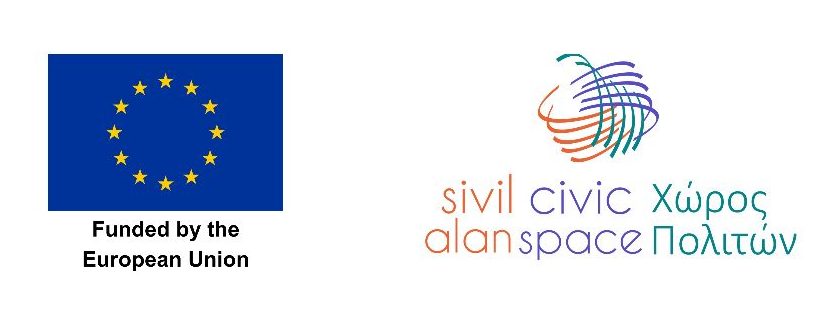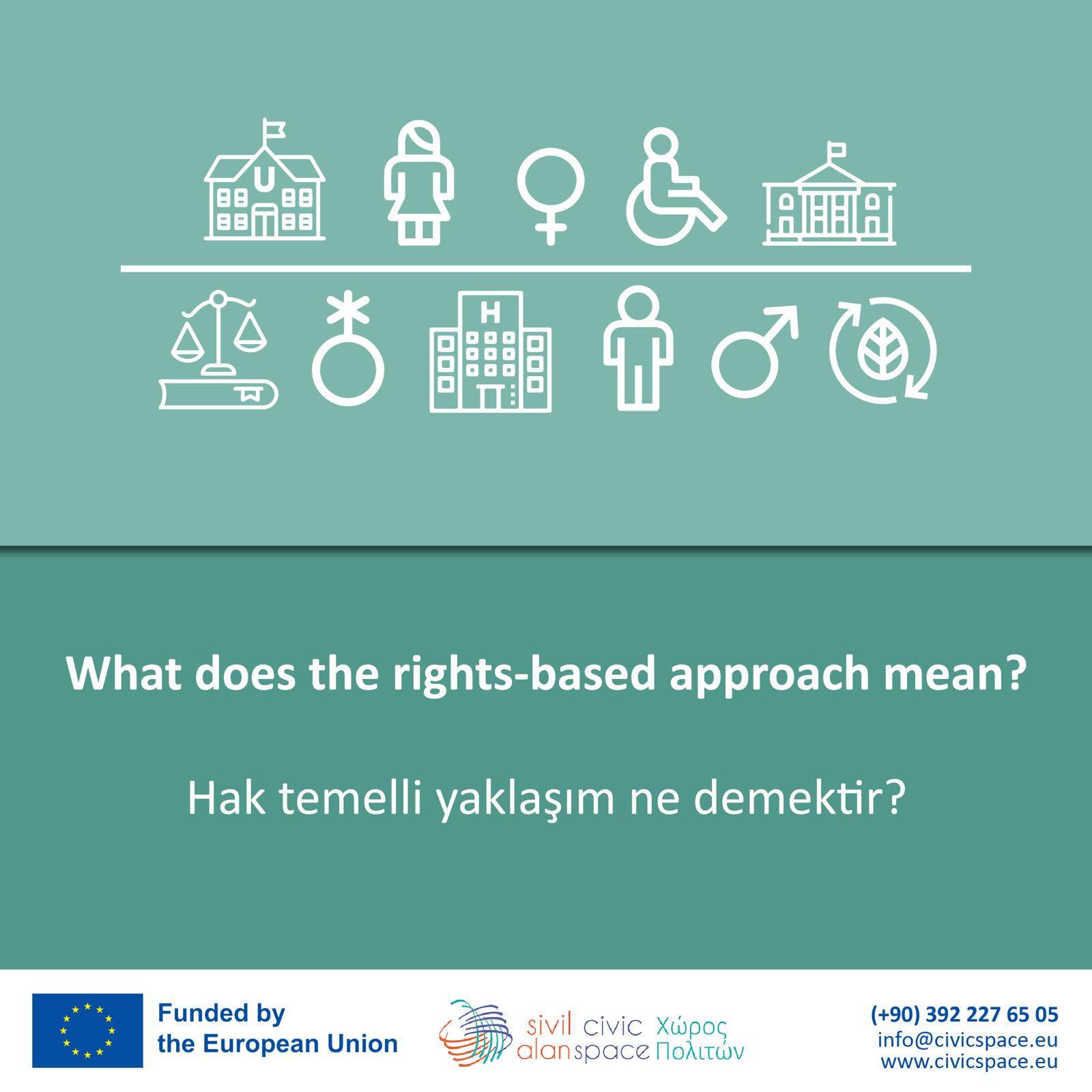The rights-based approach is a fundamental principle that recognises human dignity as the illuminating beacon of governance and social policies, embodied in the fundamental principles of equality and justice. It is a compass that guides societies towards creating an egalitarian and just world, promoting an environment in which the inherent rights and freedoms of every individual are supported and protected.
A rights-based approach places the human person at the centre of all consultations, policies and actions. It recognises individuals not as passive recipients of assistance, but as active participants in social processes and holders of rights. These rights, founded in the Universal Declaration of Human Rights, cover a wide range of civil, political, economic, social and cultural dimensions that extend beyond geographical and cultural boundaries.
Just as each brick of the Sagrada Familia in Barcelona, the Büyükhan in Nicosia, the Colosseum in Rome or the House of Dionysus in Paphos is carefully placed to create a harmonious structure that will stand the test of time, each component of a rights-based approach complements the other. Similarly, the rights-based approach builds the foundation of governance and policy, ensuring that each component is carefully designed to resonate with the fundamental chords of human rights. It aims to ensure that governments, institutions and stakeholders are accountable, transparent and responsive, and that marginalised and disadvantaged groups are not only heard but also included in decision-making processes.
Moreover, the rights-based approach reflects a robust structural framework in which rights are not limited to abstract aspirations but are transformed into actionable and justifiable rights. It empowers individuals and institutions to realise human rights and freedoms, thereby strengthening the concept that human rights are not abstract ideals but concrete and enforceable commitments.
Like a large and complex tapestry woven with threads of justice, equity and compassion, the rights-based approach weaves these threads together in a complex way so that the final picture is one of inclusiveness and equity. It exposes systemic inequalities and catalyses societies towards transformative change by identifying the root causes of social inequalities.
Another crucial notion to be taken into account alongside rights-based approach is the perspective of the ‘rights-based approach’. This approach is a strategic method centred on protecting and promoting human rights principles. It emphasises empowering individuals and communities to understand, claim and demand their human and civil rights, while holding authorities and institutions accountable for fulfilling their obligations. This approach shifts the focus from purely philanthropic assistance to addressing systemic inequalities and injustices and aims to create sustainable and transformative change by promoting active participation, inclusion and the protection of fundamental rights for all.
At its core, the Rights-Based Approach recognises that all individuals have certain rights by virtue of their humanity. These rights cover civil, political, economic, social and cultural dimensions and are enshrined in international treaties and conventions such as the Universal Declaration of Human Rights. The Rights-Based Approach goes beyond meeting immediate needs and aims to create lasting and systemic change by addressing the structural causes of inequality and discrimination.
At the centre of this approach are the concepts of duty bearers and rights holders. Duty-bearers, which often include social institutions and other powerful organisations, are obliged to respect, protect and fulfil the rights of all individuals within their jurisdiction. If, on the other hand, rights-holders are individuals or communities whose rights are at stake, the rights-based approach emphasises the need for a participatory and inclusive approach to ensure that their voices are heard and taken into account in decision-making processes.
Additionally, a key focus of rights-based approach is its emphasis on empowerment. Rather than treating marginalised or vulnerable social groups as helpless persons not involved in social processes, this approach aims to empower them to actively participate in defending their rights. This includes providing information, developing skills and creating spaces for meaningful participation. Empowered rights-holders can then demand accountability, challenge discriminatory practices and contribute to shaping policies and programmes that affect their lives.
The rights-based approach also recognises the importance of transparency, access to information and the rule of law. It encourages the monitoring and reporting of human rights violations, as well as the creation of mechanisms to redress the grievances of those affected. It aims to break the cycle of poverty, exclusion and injustice by focusing on the underlying causes of rights inequality.
As a result, the Rights-Based Approach provides a comprehensive and transformative framework for advancing human rights and social justice. By promoting empowerment, accountability and participation, it strives to create a world where the rights of every individual are recognised, respected and fulfilled, leading to more equitable and just societies.
For this reason, the rights-based approach does not only examine the surface of the issues; it goes to the heart of the issues and tries to eliminate the barriers that prevent the full realisation of rights. Whether these barriers take the form of gender inequalities, economic inequalities or social exclusion, the rights-based approach advocates for a journey towards eliminating the roots of such injustices.
In a world where social constraints are labyrinthine and intertwined, the rights-based approach emerges as a unifying force. It transcends social divisions and ideological differences, reminding us that despite our different backgrounds and beliefs, we all share a common humanity and deserve the same basis of rights.
It is important to remember that a rights-based approach does not work in isolation, but develops on the axis of accountability and participation. While States assume responsibility for the protection and promotion of these rights, civil society, the private sector and the academia play important roles as watchdogs and partners in this collective endeavour. This synergy ensures a holistic and comprehensive endeavour in advancing the cause of human rights.
Imagine a lush garden where each plant is tended with care and dedication: Similarly, a rights-based approach creates an environment in which individuals can blossom and flourish. It nurtures an ecosystem where education, health care, social services and opportunities are not privileges bestowed on a select few, but rights guaranteed to every member of society.
Civil society should be considered not only as a beneficiary of rights-based approach, but also as a creator and provider. Civil society can significantly increase its engagement in a rights-based approach by undertaking several key actions. First, it is crucial to raise awareness and education within communities about basic human rights and their entitlements. Empowering individuals with knowledge enable them to recognise injustices and advocate for change effectively.
Second, by creating platforms for open dialogue and inclusive participation, civil society organisations can ensure that marginalised voices are heard and included in decision-making processes. This inclusiveness increases the legitimacy and effectiveness of advocacy efforts.
Third, civil society can collaborate with legal experts to promote legal literacy and provide assistance to remedy rights violations. By using legal mechanisms and advocacy tools, civil society can hold duty-bearers accountable for fulfilling their responsibilities. Furthermore, strategic networking and alliances with like-minded organisations can strengthen the collective voice and provide a stronger influence on policy-making and implementation.
Civil society can also engage in data collection, analysis and dissemination to shed light on systemic problems and human rights violations. Well-documented evidence strengthens advocacy efforts and facilitates evidence-based dialogue with policymakers and the public. Finally, adopting technology and social media platforms can strengthen advocacy messages and ensure wider reach and mobilisation.
Combining these approaches enables civil society to be more active and effective in advocating for a rights-based agenda, contributing to the creation of equitable, just and rights-respecting societies.
In this complex fabric, the rights-based approach interweaves mutual understanding and accountability. It encourages governments to formulate policies and allocate resources that prioritise the needs of marginalised and underserved populations. It demands that development initiatives are not one-size-fits-all solutions, but tailored interventions that take into account the unique challenges faced by various segments of the population.
The rights-based approach also serves as a moral compass to guide nations in times of crisis and uncertainty. It reminds us that human rights are non-negotiable and inviolable, even in the face of adversity. They are a shield that protects individuals from discrimination, exploitation and oppression, offering a refuge of protection and dignity.
In conclusion, the rights-based approach is a luminous concept that calls societies to a future of inclusion, equality and justice. It underlines the fact that every individual, regardless of background or circumstances, has an inherent worth that deserves to be cherished and respected. It is an invitation to remove the obstacles that block the path to human flourishing and a song that resonates with the symphony of universal human rights. As we navigate the complex fabric of global challenges, the rights-based approach stands as a faithful companion, guiding our collective journey towards a world in which everyone can realise their full potential and enjoy the radiance of their inherent rights. It believes that every human being has inherent value as a human being.





